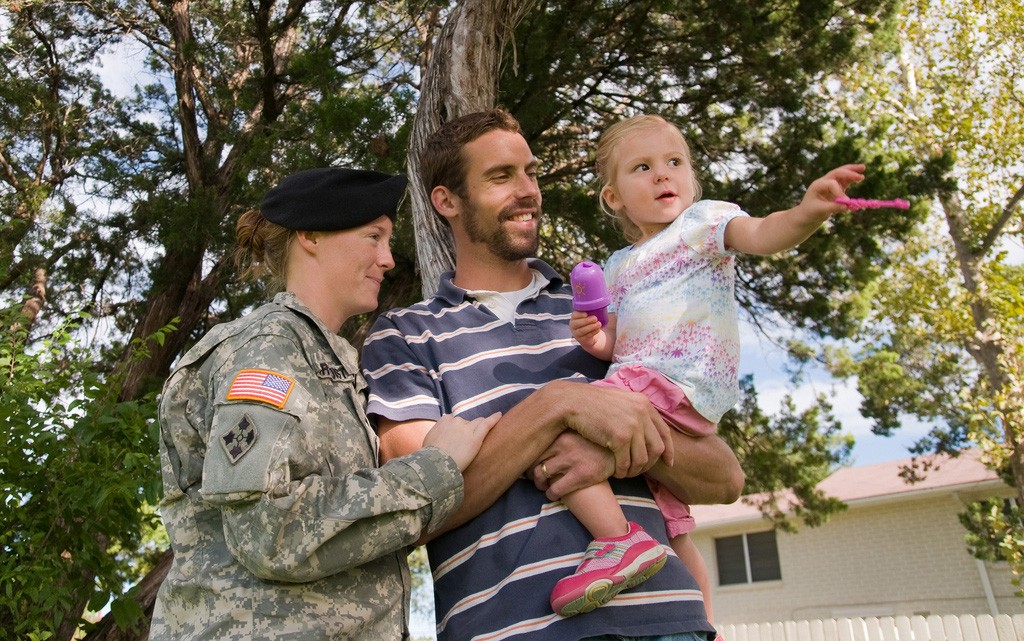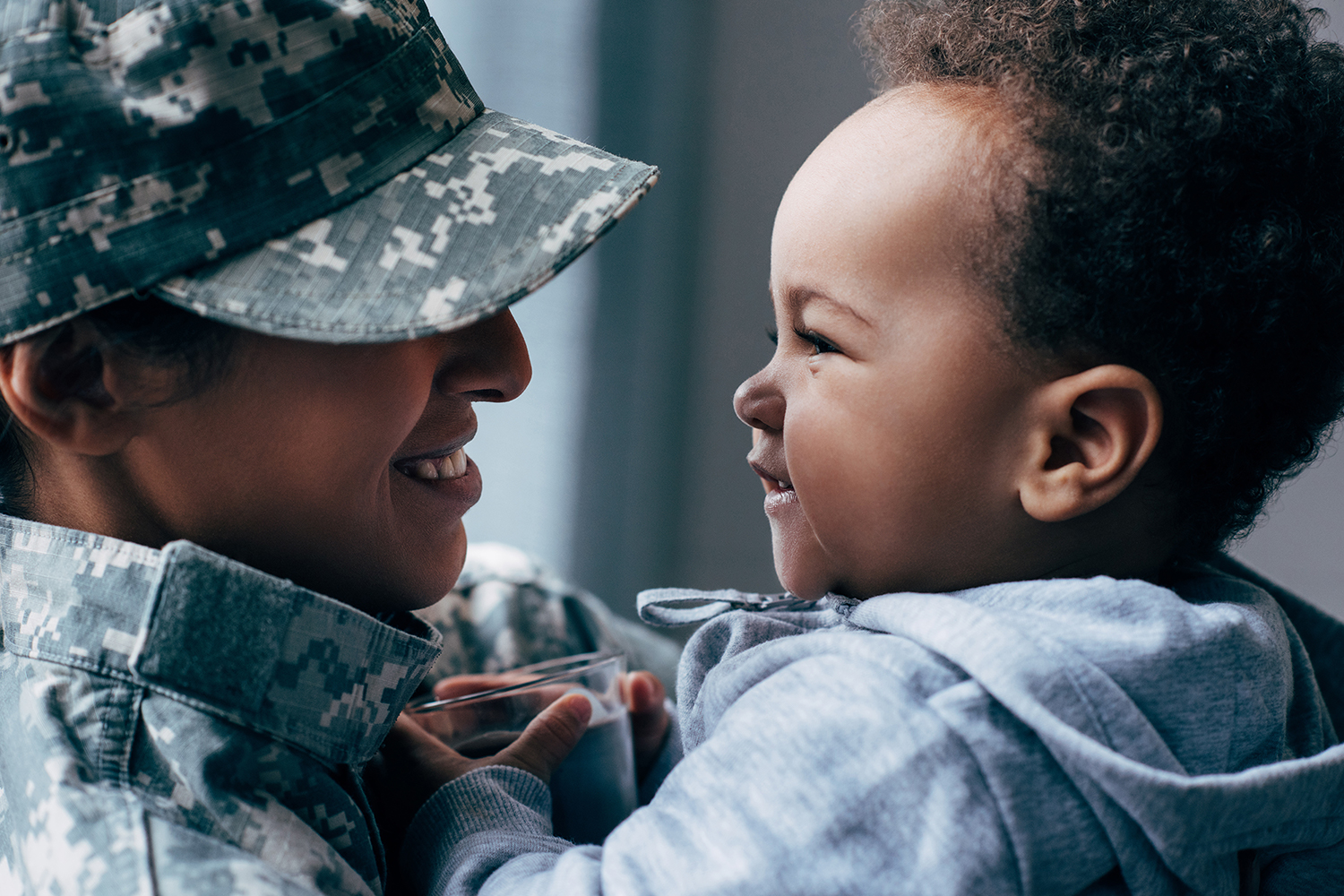Triad of Tips: Parenting in Military Families
Handling the challenges of parenting in a military family? Focus on key tips. First, communicate openly and build resilience with your family. Next, stay flexible and adapt to change easily. Finally, establish stable routines for your children’s comfort. Remember, support is essential, so create a network that understands. And don’t forget about self-care – it’s fundamental for your well-being. These strategies form a solid foundation for managing the unique aspects of military family life.
Key Takeaways
- Prioritize open communication and resilience building.
- Embrace flexibility and adaptability in parenting.
- Establish stability through consistent routines.
- Nurture emotional well-being and teach emotional regulation.
- Build a supportive community and prioritize self-care.
Building Resilience Through Communication

To strengthen your family’s ability to overcome challenges, prioritize open and honest communication as a key tool in building resilience. Active listening is vital in fostering understanding and connection within your family unit.
When engaging in conversations, make a conscious effort to truly listen to what each family member is saying without judgment or interruption. This practice not only helps in comprehending their perspectives but also demonstrates respect and empathy.
Encouraging open communication lays the foundation for trust and emotional support. Create a safe space where everyone feels comfortable expressing their thoughts and feelings.
Be transparent about your own emotions and experiences, setting an example for your children to do the same. By fostering a culture of openness, you equip your family with the tools to navigate challenges together.
Embracing Flexibility and Adaptability

Maintaining a flexible and adaptable mindset is essential for managing the unpredictable nature of military life as a parent. The flexibility challenges that come with being part of a military family can be demanding and require quick adjustments. Embracing flexibility means being open to change and finding ways to adapt to new circumstances as they arise. It involves being understanding when plans shift unexpectedly and being ready to pivot at a moment’s notice.
On the flip side, the benefits of adaptability in dealing with military life as a parent are numerous. Being adaptable allows you to handle changes more smoothly, cope with shifts more effectively, and model resilience for your children. Different parenting styles may need to be adopted to accommodate the unique challenges that military life presents.
Flexibility and adaptability go hand in hand in creating a supportive and stable environment for your family amidst the uncertainties of military life. Remember, being flexible doesn’t mean sacrificing structure; it means being willing to adjust your sails while staying true to your values.
Establishing Routines for Stability
Creating consistent routines is key to providing stability and structure for both you and your children in the dynamic world of military family life. Morning routines and evening rituals can serve as anchors, offering a sense of predictability amidst the changes that come with military life.
Consistency in daily schedules can help your children feel secure and better equipped to handle the shifts and separations that are part of the military lifestyle. Establishing set times for meals, bedtime, and family activities can create a sense of normalcy for your family, even in the face of deployments or relocations.
Involving your children in creating these routines can empower them and give them a sense of control over their environment. Flexibility is important, but having a general structure in place can provide a foundation for stability.
Nurturing Emotional Well-being

Ensuring your children’s emotional well-being is a vital aspect of nurturing a resilient and thriving military family dynamic. Emotional regulation plays a significant role in helping your children navigate the unique challenges that come with military life. Encouraging open communication and validating their feelings can aid in developing healthy coping mechanisms.
Teaching your children how to identify and manage their emotions is key to fostering emotional stability. Help them understand that it’s okay to feel a range of emotions and provide them with tools to regulate these feelings effectively. Simple techniques like deep breathing exercises or creating a feelings journal can empower them to express themselves in a constructive manner.
Additionally, promoting healthy coping mechanisms can strengthen their emotional resilience. Encourage activities that help them relax and unwind, such as art, sports, or spending time outdoors.
Creating a Supportive Community
Building a strong network of understanding and empathetic individuals can greatly contribute to the well-being of your military family. Community engagement plays an essential role in providing support and a sense of belonging for military spouses facing parenting challenges. It’s important to actively seek out and nurture supportive networks within the military community to navigate the unique trials of military life.
Military spouses often understand the demands and uncertainties that come with the lifestyle, making them a valuable source of empathy and shared experiences. Engaging with other military families can offer a sense of camaraderie and solidarity, creating a safe space to discuss parenting challenges openly and receive valuable advice and support.
Balancing Discipline With Understanding
Finding a balance between setting boundaries and showing understanding is vital in guiding your children in a military family setting. As a parent, striking the delicate balance between discipline and empathy can be challenging but is essential for fostering a healthy environment for your kids. It’s about discovering that sweet spot where you enforce rules while also being understanding of the unique challenges they may face due to the military lifestyle.
Maintaining a discipline balance involves setting clear expectations and consequences for actions, but it’s equally important to offer understanding and support. Recognizing when your child may be struggling with the frequent moves, deployments, or other stressors can help you tailor your approach to discipline with more empathy.
Fostering Independence in Children

To help your children thrive in a military family environment, it’s important to encourage and nurture their independence as they navigate the unique challenges they may encounter. Encouraging autonomy and promoting self-reliance are key aspects of fostering independence in children. By allowing your children to make essential life skills that will serve them well in the future.
One way to encourage autonomy is by involving your children in decision-making processes. This could involve letting them choose their extracurricular activities or decide on their own schedules within set boundaries. By giving them a sense of control over their lives, you’re empowering them to become more independent and confident individuals.
Promoting self-reliance also means teaching your children how to solve problems on their own and encouraging them to ask for help when needed. By fostering independence in your children, you’re equipping them with the tools they need to navigate the challenges of military life and beyond.
Prioritizing Self-care for Parents

As a parent in a military family, it’s essential to prioritize self-care to maintain your well-being. Remember, taking care of yourself allows you to better care for your children and handle the challenges that come with military life.
Don’t hesitate to seek support from fellow parents, friends, or professional resources when you need it.
Importance of Self-Care
Taking care of yourself as a parent in a military family isn’t just a luxury; it’s an essential for maintaining your well-being and ability to support your family effectively. In the midst of the demands and challenges you face daily, remember the importance of self-care.
Start by incorporating mindful relaxation techniques into your routine. Whether it’s deep breathing exercises, short walks, or moments of quiet reflection, these practices can help you recharge and stay grounded.
Setting personal boundaries is another pivotal aspect of self-care. It’s okay to say no to additional responsibilities when you’re feeling overwhelmed. Prioritize tasks based on their importance and learn to delegate when possible.
Strategies for Parents
Prioritizing self-care as a parent in a military family involves implementing practical strategies to safeguard your well-being amidst the unique challenges you face. Coping mechanisms play an essential role in helping you navigate the ups and downs that come with military life.
During deployment challenges, it’s important to establish a self-care routine that suits your needs. One effective strategy is to carve out time for yourself each day, even if it’s just for a few minutes. This can help you recharge and stay resilient in the face of uncertainty.
Engaging in activities you enjoy, whether it’s reading, exercising, or practicing mindfulness, can also be beneficial for your mental and emotional well-being. Additionally, don’t hesitate to seek support from friends, family, or a therapist when needed.
Remember that taking care of yourself isn’t selfish but necessary for you to be the best parent you can be for your children. By prioritizing self-care and implementing coping mechanisms, you can better navigate the challenges that come with being a parent in a military family.
Seeking Support When Needed
When you feel overwhelmed or in need of extra support as a parent in a military family, reaching out for help is an important step towards prioritizing your self-care. Seeking counseling can provide you with a safe space to explore your feelings and develop coping strategies tailored to your unique situation.
Connecting with peers who understand the challenges you face can offer valuable insights and a sense of camaraderie. Joining support groups specifically designed for military families can be incredibly beneficial. These groups often provide a sense of community, practical advice, and emotional support.
Attending workshops focused on topics like stress management, communication skills, or parenting techniques can equip you with valuable tools to navigate the complexities of military family life.
Celebrating Milestones and Achievements
Hey there, it’s important to acknowledge the milestones and achievements within your military family.
Finding simple yet meaningful ways to celebrate these moments can help boost morale and strengthen your family bond.
Milestone Recognition Strategies
Ensuring you acknowledge and celebrate the milestones and achievements of your child can greatly boost their self-esteem and sense of accomplishment in the midst of the unique challenges faced by military families.
One effective strategy is to host milestone parties or organize virtual celebrations with family and friends. These events provide a special opportunity to recognize your child’s accomplishments and create lasting memories.
Another valuable approach is through personalized recognition. Consider creating family traditions around celebrating milestones, such as having a special dinner or outing to mark significant achievements. These traditions not only make your child feel special but also strengthen family bonds during times of separation or deployment.
Celebrating Family Achievements
Celebrating your family’s achievements and milestones is a meaningful way to strengthen bonds and uplift spirits, especially in the dynamic environment of military life. Establishing family traditions around these celebrations can create lasting memories and provide a sense of continuity despite frequent relocations and deployments.
Whether it’s a special dinner, a family outing, or a personalized ritual, these traditions can foster a sense of belonging and connection within your family unit.
Recognition ceremonies are another powerful way to acknowledge and celebrate the accomplishments of family members. Whether it’s a promotion, a graduation, or a personal achievement, taking the time to formally recognize these milestones can boost morale and create a sense of pride within the family.
These ceremonies don’t have to be elaborate; a simple gathering with heartfelt words of appreciation can make a significant impact.
Frequently Asked Questions
How Can Military Families Cope With Frequent Moves?
Moving frequently can be tough, but you can cope. Prioritize finding stability in routines and relationships. Connect with other military families for support. Building a strong community can help you navigate the challenges of frequent moves.
What Resources Are Available for Military Families During Deployments?
During deployments, military families have access to support groups for emotional help and counseling for mental well-being. Financial assistance programs can aid in times of need, and childcare services offer practical support for parents.
How Can Parents Help Children Understand the Military Lifestyle?
To help your children understand the military lifestyle, use communication strategies like open discussions and honest explanations. Offer emotional support by validating their feelings. Utilize education tips to teach them about military life and encourage community involvement for a sense of belonging.
Are There Specific Challenges for Military Families With Special Needs Children?
Handling the unique challenges of raising a special needs child in a military family can be tough. Seek education support and advocacy resources to guarantee your child’s needs are met. Connect with community groups for guidance and understanding.
How Can Military Parents Address the Impact of Separation on Children?
To address the impact of separation on your children in the military, utilize communication strategies to stay connected, establish coping mechanisms for both parents and kids, provide emotional support, and maintain routines. These efforts can ease the challenges of being apart.
Conclusion
Remember, parenting in military families comes with its own set of challenges, but by focusing on:
- Communication
- Flexibility
- Routines
- Emotional well-being
- Community support
- Discipline
- Independence
- Self-care
- Celebrating achievements
you’re building a strong foundation for your family.
You aren’t alone in this journey, and there are resources and people who understand and are here to support you. Keep prioritizing your family’s well-being and know that you’re doing an incredible job.

Chad Adan Kace, a young dad from Vermont, shares his parenting journey with a touch of humor and lots of love. Father to a lively baby, he explores the joys and challenges of fatherhood through his stories.







